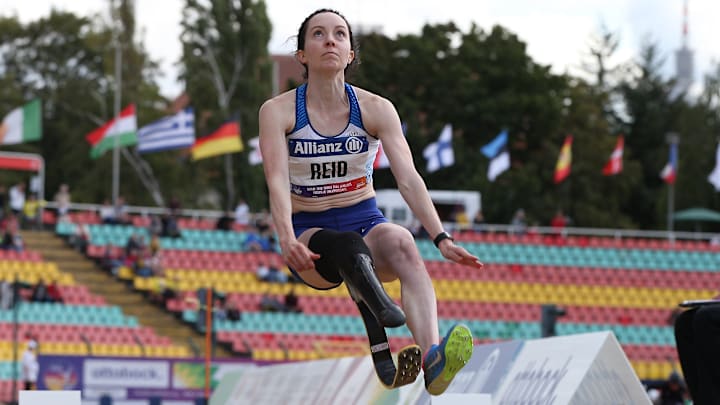Track and field Paralympian Stef Reid has called out Nike for not authorizing the sale of single-pair shoes, despite promoting "an image of diversity and inclusion". Having won multiple medals at both the European and global stages, she earned a bronze in the 200m event during the 2008 Paralympics and a silver in the long jump event during the 2012 Paralympics.

Nike responded to Reid's pleas by thanking her for raising concerns on the issue and they were "exploring opportunities". Nike also mentioned plans to gain insights from its One Shoe Bank initiative, a program wherein amputees are entitled to one yearly trainer completely free of charge. Nevertheless, this program is currently exclusive to the American market, making it difficult for international athletes to capitalize on a similar opportunity.
These Paralympic athletes are calling on sportswear brands to revise or update their policies.
Reid was shopping at a Nike retail location when they informed her she needed to purchase a full pair of trainers. Reid was distraught by this answer as she pointed out the shop advertising an amputee display sporting a single running blade. Instead of honoring the single-pair transaction, Reid was instead given the option of a discount exception, to which she was still disatisfied by their proposition.
For Reid, the issue does not stem from a monetary perspective, rather she cannot comprehend the idea of paying full-price for a product wherein the second pair is rendered useless. Reid went on to say in an interview with BBC Newsbeat:
"I'm still only going to have one foot, so this isn't a solution. And it's bigger than me, This isn't just about me. They said they were going to take it to higher up... I just want a conversation with Nike."Stef Reid via BBC Newsbeat
Another paralympic athlete who shares a similar sentiment is Sophie Kamlish, who represented Great Britain at the 2012 Summer Paralympics and 2016 Summer Paralympics. In the same BBC Newsbeat article, Kamlish went on to express a comparable frustration with sportswear brands such as Nike:
"Nike are using the image of inclusion, which is really cool. You wouldn't have seen that a few years ago, but they're not being as helpful when it comes to buying one shoe. It's irritating and annoying because I've got these perfectly good shoes just hanging around my house that I have to throw in the bin, or not use at all"Sophie Kamlish via BBC Newsbeat

Kamlish's efforts to purchase a single-pair at an in-store location went to no avail, however, a solution came calling when another person who had an opposite side amputation gladly accepted her extra pair. But of course, this system takes a lot more effort on the side of the consumer, when the brand promoting inclusivity should be more proactive.
Although Nike is at the focus of these athlete's concerns, Reid has called out other brands like Brooks Running and Decathlon in the past for similar policies. It's pretty clear there is a growing concern to inclusive sneaker access for all, and the ball is in these companies' courts to decide an appropriate solution to satisfy the parties involved.
